Our top pick for
ASX trading
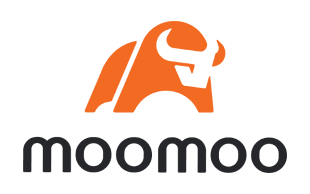
Carnival Corp is listed on the NYSE, so you can buy Carnival shares from Australia if you sign up to a share trading platform with access to US markets. Check out the detailed steps below on how to buy or read up on Carnival's financial data, its technical analysis reading and find related ETFs.
Our top pick for
ASX trading

Our top pick for
Copy trading

Our top pick for
Beginners
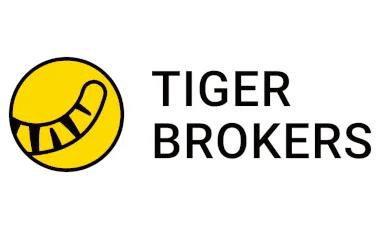
Another way to invest in Carnival Corp is to invest in an exchange traded fund (ETF) that holds CCL stock.
ETFs are funds that hold multiple company stocks. So when you invest in exchange traded funds (ETF) or index funds, you expose yourself to a variety of companies and industries.
The good news is that Carnival Corp is listed on the NYSE and sits on the S&P500 index, so it's included in many global funds including ETFs.
As a major listed company in the US, Carnival is featured on many US-market ETFs in Australia. Here are some ETFs we found that offer Carnival shares on their portfolios:

Latest news 2024
Carnival's shares were split on a 2:1 basis on 14 June 1998. So if you had owned 1 share the day before the split, the next day you would own 2 shares. This wouldn't directly have changed the overall worth of your Carnival shares – just the quantity. However, indirectly, the new 50% lower share price could have impacted the market appetite for Carnival shares which in turn could have impacted Carnival's share price.
Use the fields above to explore the returns from a historical investment. Please refer to the charts further up this page to see performance over 5 years, or other periods. Past performance doesn't indicate future results. Capital is at risk.
Historical closes compared with the last close of $31.45
| 1 week (2026-01-30) | 4.76% |
|---|---|
| 1 month (2026-01-06) | -2.63% |
| 3 months (2025-11-06) | 19.26% |
| 6 months (2025-08-06) | 7.56% |
| 1 year (2025-02-06) | 14.61% |
|---|---|
| 2 years (2024-02-06) | 96.93% |
| 3 years (2023-02-06) | 164.95% |
| 5 years (2021-02-05) | 47.58% |
We currently don't have that product, but here are others to consider:
How we picked theseWe've scored over 30 share trading platforms assessing them for their core features, fees, customer experience and accessibility. Our experts give each platform a score out of 10.
The technical analysis gauge below displays real-time ratings for the timeframes you select. However, this is not a recommendation. It represents a technical analysis based on the most popular technical indicators: Moving Averages, Oscillators and Pivots. Finder might not concur and takes no responsibility.

"After a terrible few years, cruise demand is back above pre-pandemic levels, serving as a positive tailwind for Carnival for the rest of this fiscal year. Earnings from across the industry are glowing, and Carnival’s Q1 earnings in March showed that its loss was narrowing, with its top and bottom line beating Wall Street estimates. If demand continues, Carnival’s financial troubles incurred from the pandemic period should begin to improve."
Valuing Carnival stock is incredibly difficult, and any metric has to be viewed as part of a bigger picture of Carnival's overall performance. However, analysts commonly use some key metrics to help gauge the value of a stock.
Carnival's current share price divided by its per-share earnings (EPS) over a 12-month period gives a "trailing price/earnings ratio" of roughly 15x. In other words, Carnival shares trade at around 15x recent earnings.
That's relatively low compared to, say, the trailing 12-month P/E ratio for the NASDAQ 100 at the end of 2019 (27.29). The low P/E ratio could mean that investors are pessimistic about the outlook for the shares or simply that they're under-valued.
Carnival's "price/earnings-to-growth ratio" can be calculated by dividing its P/E ratio by its growth – to give 1.41. A low ratio can be interpreted as meaning the shares offer better value, while a higher ratio can be interpreted as meaning the shares offer worse value.
The PEG ratio provides a broader view than just the P/E ratio, as it gives more insight into Carnival's future profitability. By accounting for growth, it could also help you if you're comparing the share prices of multiple high-growth companies.
Carnival's EBITDA (earnings before interest, taxes, depreciation and amortisation) is US$7.1 billion (£5.4 billion).
The EBITDA is a measure of a Carnival's overall financial performance and is widely used to measure stock profitability.
Over the last 12 months, Carnival's shares have ranged in value from as little as US$15.07 up to US$32.89. A popular way to gauge a stock's volatility is its "beta".
Beta measures a share's volatility in relation to the market. The market (NYSE average) beta is 1, while Carnival's is 2.516. This would suggest that Carnival's shares are significantly more volatile than the average for this exchange and represent a higher risk.
| Revenue TTM | US$26.6 billion |
|---|---|
| Operating margin TTM | 9.65% |
| Gross profit TTM | US$14.8 billion |
| Return on assets TTM | 5.41% |
| Return on equity TTM | 25.63% |
| Profit margin | 10.37% |
| Book value | 9.363 |
| Market capitalisation | US$42.6 billion |
| EBITDA | US$7.1 billion |
TTM: trailing 12 months
Dividend payout ratio: 6.67% of net profits
Recently Carnival has paid out, on average, around 6.67% of net profits as dividends. That has enabled analysts to estimate a "forward annual dividend yield" of 0% of the current stock value. This means that over a year, based on recent payouts (which are sadly no guarantee of future payouts), Carnival shareholders could enjoy a 0% return on their shares, in the form of dividend payments. In Carnival's case, that would currently equate to about $N/A per share.
While Carnival's payout ratio might seem low, this can signify that Carnival is investing more in its future growth.
Carnival's most recent dividend payout was on 26 February 2026. The latest dividend was paid out to all shareholders who bought their shares by 12 February 2026 (the "ex-dividend date").
Environmental, social and governance (known as ESG) criteria are a set of three factors used to measure the sustainability and social impact of companies like Carnival.
When it comes to ESG scores, lower is better, and lower scores are generally associated with lower risk for would-be investors.
Total ESG risk: 29.72
Socially conscious investors use ESG scores to screen how an investment aligns with their worldview, and Carnival's overall score of 29.72 (as at 12/31/2018) is pretty good – landing it in it in the 33rd percentile of companies rated in the same sector.
ESG scores are increasingly used to estimate the level of risk a company like Carnival is exposed to within the areas of "environmental" (carbon footprint, resource use etc.), "social" (health and safety, human rights etc.), and "governance" (anti-corruption, tax transparency etc.).
Environmental score: 15.93/100
Carnival's environmental score of 15.93 puts it squarely in the 9th percentile of companies rated in the same sector. This could suggest that Carnival is a leader in its sector terms of its environmental impact, and exposed to a lower level of risk.
Social score: 16/100
Carnival's social score of 16 puts it squarely in the 9th percentile of companies rated in the same sector. This could suggest that Carnival is a leader in its sector when it comes to taking good care of its workforce and the communities it impacts.
Governance score: 8.29/100
Carnival's governance score puts it squarely in the 9th percentile of companies rated in the same sector. That could suggest that Carnival is a leader in its sector when it comes to responsible management and strategy, and exposed to a lower level of risk.
Controversy score: 3/5
ESG scores also evaluate any incidences of controversy that a company has been involved in. Carnival scored a 3 out of 5 for controversy – a middle-of-the-table result reflecting that Carnival hasn't always managed to keep its nose clean.
Carnival Corporation was last rated for ESG on: 2019-01-01.
| Total ESG score | 29.72 |
|---|---|
| Total ESG percentile | 33.28 |
| Environmental score | 15.93 |
| Environmental score percentile | 9 |
| Social score | 16 |
| Social score percentile | 9 |
| Governance score | 8.29 |
| Governance score percentile | 9 |
| Level of controversy | 3 |
Carnival Corporation & plc, a cruise company, provides leisure travel services in North America, Australia, Europe, and internationally. The company operates through four segments: NAA Cruise Operations, Europe Cruise Operations, Cruise Support, and Tour and Other. It operates port destinations and islands, as well as owns and operates hotels, lodges, glass-domed railcars, and motorcoaches. The company offers its services under the AIDA Cruises, Carnival Cruise Line, Costa Cruises, Cunard, Holland America Line, P&O Cruises (Australia), P&O Cruises (UK), Princess Cruises, and Seabourn brands. It sells its cruises through travel agents, tour operators, vacation planners, websites, and onboard future cruise consultants. Carnival Corporation & plc was founded in 1972 and is headquartered in Miami, Florida.

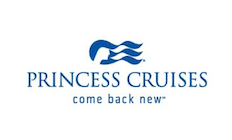

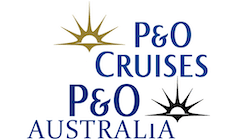




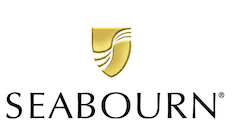
Carnival has more than 150,000 employees worldwide. Some of the key figures at Carnival are:
We used Finder's proprietary algorithm to find the 10 best stocks under $10 on the ASX.
We used Finder's proprietary algorithm to find Australian-listed companies that have strong fundamentals and have a share price under $5.
Best performers included Latitude 66, Cosmos Exploration and Javelin Minerals.
Here are our algorithm-selected 20 Aussie stocks worth watching in 2026.
Here's what investors should know before adding AI stocks to their portfolios.
Find out the different ways you can invest in the S&P 500 index from Australia.
Following a couple of lean years for dividend investors, here are 10 ideas you could consider in your portfolio.
Index funds are a hot topic right now, but how do you actually invest in them?
If you’re thinking of investing in gold, our guide will explain how and where to buy gold in Australia as well as the pros and cons of investing in it.
Find cheap stock brokerage in Australia when buying and selling shares on the ASX and other international exchanges.